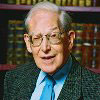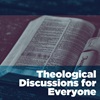Note: J. I. Packer is the award-winning author of numerous books, including the classic Knowing God. SmallGroups.com recently had the chance to speak with Dr. Packer as part of an editors' panel in the offices of Christianity Today International.
Do churches and small groups have a responsibility to fight heresy when laypeople teach others?
Yes, churches are responsible for weeding out heretical teaching, and that's pretty clear from the New Testament. In those early days of Christianity out in the pagan world, there were any number of cults and any number of false views. And in the Pastoral Epistles we see individuals who are held up as solemn warnings—"Don't go their route."
Let me also say that it's my firm conviction that churches ought to foresee this unhappy possibility of heresy getting in when lay-folk are leading. And they should counter the possibility by what in the history of the church has been called "catechesis." We hardly hear of it these days, but in the second and third centuries A.D.—and indeed for some centuries after—it's rather amazing to discover that inquirers into the faith were fed into catechetical classes.
Can you explain a little more about the process of catechesis?
First, there are other ways of doing catechesis than by question and answer, which is what we are used to when we think of catechizing children. Catechesis is the teaching of the truths that Christians live by, and linked with that it's the teaching of how to live by those truths. It's a practical, pastoral discipline of instruction.
In the second and third centuries, the inquirers didn't have any Christian background—they didn't have any kind of theistic background even. They were polytheists who came out of various pagan cults. And so the catechists had to begin at the beginning and take them through the whole body of Christian doctrine.
We know from surviving catechetical materials that they taught not by separating truths from each other in order to focus on them in isolation. Rather, they taught the whole Christian view of Christianity—God's great economy of grace for the salvation of sinners—and the syllabus was essentially the themes of the Apostle's Creed.
And you feel that the practice of catechesis would be beneficial in modern churches, as well?
Yes. If we could recover catechesis as a regular element of church life, well, we'd be anticipating a lot of these problems with heresy and other troubles. We'd be constantly sustaining orthodoxy and reminding people of what the Christian faith is when you put it all together as a single ball of wax.
And in the absence of catechesis you do find laypeople who believe themselves to have a teaching gift—and perhaps have impressed the church as having a teaching gift— but allow themselves to deviate.
In your opinion, what should churches do when they identify someone who may be leading others astray?
Don't let them go on doing it, first and foremost. It seems to me that the responsibility of the small group is to let it be known that a leader is saying some things that appear to be unsound, unbiblical, or untrue. And that complaint must go up to the leadership of the congregation, whatever form the leadership takes. As an Anglican I'm thinking in terms of the rector; all bucks stop on the rector's desk. But there will always be a leadership group in any congregation.
Well, the complaint goes up to the leadership group, and it's the leadership group's responsibility in the first instance to handle it—which means that they ask the person who's been making waves to explain him or herself. And then according to the way the offender reacts to the corrective response, well, you take it from there. You hope that the errorist will allow him or herself to be put straight. Sometimes it happens that way and sometimes it doesn't.
What kinds of heretical beliefs have you found to be common in the church today?
What is common in this post-Christian age is all the various forms that are taken by the fantasy, and it's a very potent fantasy, that all religions are somehow one. Somehow they are the same religion. Somehow they are all of them pointing to the top of the same mountain, and as we climb we become more and more aware that we're getting closer to everybody else who is climbing by other paths—Muslim, Buddhist, Hindu, or whatever—and when we get to the top, we shall find that we're totally together.
It's a sweet dream, but the early Christians rejected it out of hand. And, I think, so should we.
Going back to the topic of catechism, is it still possible to do catechesis or guard against heresy as effectively when so many of our modern churches are so large?
I think it would be possible if the will was there.
I mean, if you have a megachurch, what's important is the infrastructure. You've got to develop an infrastructure which takes in all the people, thousands of them, to give them such basic instruction as they all need. Of course, it's easier to arrange an infrastructure for a congregation of about 100, but the principle is the same even though the work is harder.
You break people down into learning groups, call them classes or whatever you choose, and you have persons who are gifted and know their stuff as catechists. The catechists teach the faith as the integrated unity that it is in Scripture. They don't teach isolated points of doctrine; they teach the whole Christian story as it's brought together, and they teach the creeds. And as they go along they sort out the inquirers and they dispel the errors.
—J. I. Packer; copyright 2011 by the author and Christianity Today International.










